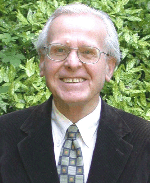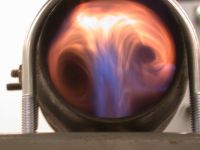
People
Faculty
 |
Professor |
Philip C. Malte is Professor of Mechanical Engineering at the Seattle campus of the University of Washington, an appointment held since 1983. Prior appointments include: Associate Professor at the University of Washington (1979-1983), Associate Professor at Washington State University (1977-1979), and Assistant Professor at Washington State University (1973-1977). From 1983 to 1994, Professor Malte directed the Mechanical Engineering Department's Graduate Program, and during 2003 and 2004, Professor Malte served as Chair of the Governing Board of the University of Washington's Program on the Environment. Additional positions have been held with the US Department of Energy, Martin Marietta Corp., and Rohr Industries Inc.
Professor Malte received the degree of PhD from the Ann Arbor campus of the University of Michigan in 1971, specializing in air-breathing propulsion in Aerospace Engineering.
Professor Malte is Fellow of the American Society of Mechanical Engineers (ASME), Associate Editor of the ASME Transactions Journal of Engineering for Gas Turbines and Power (2000-06), and Chair of the Combustion and Fuels Committee of the ASME International Gas Turbine Institute (2003-05). During 1983-85, Professor Malte served as Chair of the Western States Section of The Combustion Institute.
Professor Malte's research is focused at the fundamental level on understanding pollutant formation in high-intensity combustion. At the practical level, Professor Malte's research is focused on lean-premixed combustion turbines and applied energy technology. A key element of the fundamental research is the use of the jet-stirred reactor. Professor Malte's group was the first to apply optical diagnostics for the measurement of O-atom and OH-radicals in jet-stirred reactor reactors, and the first to identify the importance of the nitrous oxide mechanism in forming NOx in the lean-premixed, high-intensity combustion. During the mid-90s, Professor Malte's group developed a high-pressure jet-stirred reactor. Studies with this reactor explain the weak-to-negative pressure dependency of NOx observed in lean-premixed gas turbine combustors and provide an improved understanding of NOx chemistry in lean-premixed, high-intensity flames. Research in the late-90s focused on low emissions for liquid-fuel-fired lean-premixed combustors. This effort has been centered on the development and application of the dual-stage prevaporizing and premixing injector (US Patent No. 6,174,160B1). Research conducted recently has dealt with biomass combustion and its emission control, with steam-diesel injectors for fuel cell reformers, and with renewable energy applications for the National Parks.
Professor Malte's teaching is focused on energy conversion and its environmental consequences, combustion principles and practices, pollutant emissions control, and the thermal-fluids sciences. Professor Malte has supervised the thesis committees of several MS and PhD students. Classroom teaching at the University of Washington includes the development and teaching of new courses, and the re-development and teaching of existing courses, on combustion systems, energy, sustainable design, and thermodynamics. In the addition to the teaching of specialty courses and graduate student supervision, Professor Malte teaches the University of Washington's introductory courses on energy.
PublicationsBack to Top
Affiliates
-
Professor Teodora (Rutar) Shuman
Assisant Professor, Seattle University -
Professor Chris Stipe
Assisant Professor, Seattle University - Dr. David Nicol, Lawson Software
Affiliate Assistant Professor, University of Washington - Dr. Igor Novosselov

Enertechnix Inc.
Affiliate Assistant Professor, University of Washington
University of Washington (PhD 2006)Igor graduated from Yaroslavl Polytechnic University, Russia in 1993. After graduation he worked at engineering, English-Russian translation, and gymnastics instruction. In 1999, he entered the University of Washington, where he earned the MSME degree in 2002 and the PhD degree in 2006. The subject of Igor’s dissertation is “Chemical Reactor Networks for Modeling Combustion Systems.” Igor is currently employed by Enertechnix Inc, Maple Valley, WA as a senior research scientist. He is involved in modeling and validation of two-phase flows systems in bio-medical applications. His areas of interest are computer modeling of flow systems including two-phase flow and combustion systems.
Graduate Students
 |
PhD Student |
After graduating from Princeton in 2000, Brian worked for a strategic consulting firm for two years before returning to engineering at UW. As such, much of his research emphasizes both the technical and economic aspects of engineering problems. In his spare time he enjoys hiking around and over the mountains of Washington.
- Research Interests:
- Tidal In-stream Energy Conversion (TISEC) array and estuary modeling. Particularly interested in environmental effects of large-scale kinetic power extraction from estuaries.
- Thermochemical conversion of biomass to biofuels and energy with emphasis on low-cost densification.
- Teaching Experience:
- ME 341 - Energy and Environment
- ME 442 - Renewable Energy
- ME 426 - Sustainable Energy Design
 |
PhD Student |
After a year working with King County on energy efficiency measures, Boyd returned to UW to pursue further studies in mechanical engineering. Boyd gets out and about scaling the peaks and valleys of the beautiful Cascade and Olympic Mountains.
- Research Interests:
- Design of photovoltaic systems for remote off-grid applications
- Gaseous Fuel alternatives to natural gas for use in lean premixed gas turbine applications
- Combustion of Biofuels
- Teaching Experience:
- ME 332 - ThermodynamicsME 333 - Introduction to Fluid Mechanics
- ME 478 - Finite Element Analysis
- ME 355 - Mechanics and Materials
 |
PhD Student |
Kristen grew up in Seattle area, went away for college, and now is back for graduate school! She started out studying Physics at Whitman College, shifted to Applied Mathematics for her masters degree at the UW, and now has shifted once again into Mechanical Engineering in order to pursue her research interests. These interests revolve around renewable energy and mathematical modeling of fluids. In particular, she is working on and is very enthusiastic about numerically modeling in-stream tidal turbines for a potential renewable energy source in the Northwest. Kristen is also enthusiastic about running, hiking and mountaineering, especially when it involves long distances.
- Research Interests:
- Tidal in-stream energy conversion
- Teaching Experience:
- ME 332 - Thermodynamics
 |
Master's Student |
During her undergrad education, Jess spent a year abroad at the Technical University of Berlin, where she found her interest in renewable energy. She decided to continue her education at UW in order to become more involved in this field. When she's not in the lab, she enjoys going to shows and traveling.
- Research Interests:
- Microhydro
- Application and integration of renewable energy systems
Alumni
| PhD | Masters | |
|
|
|
Apparitions
 |
Lab Ghost |
Backmixed flame of steam atomized-diesel fuel, partially premixed with air, entering as jet at bottom of combustor
Back to TopBy: B. Polagye